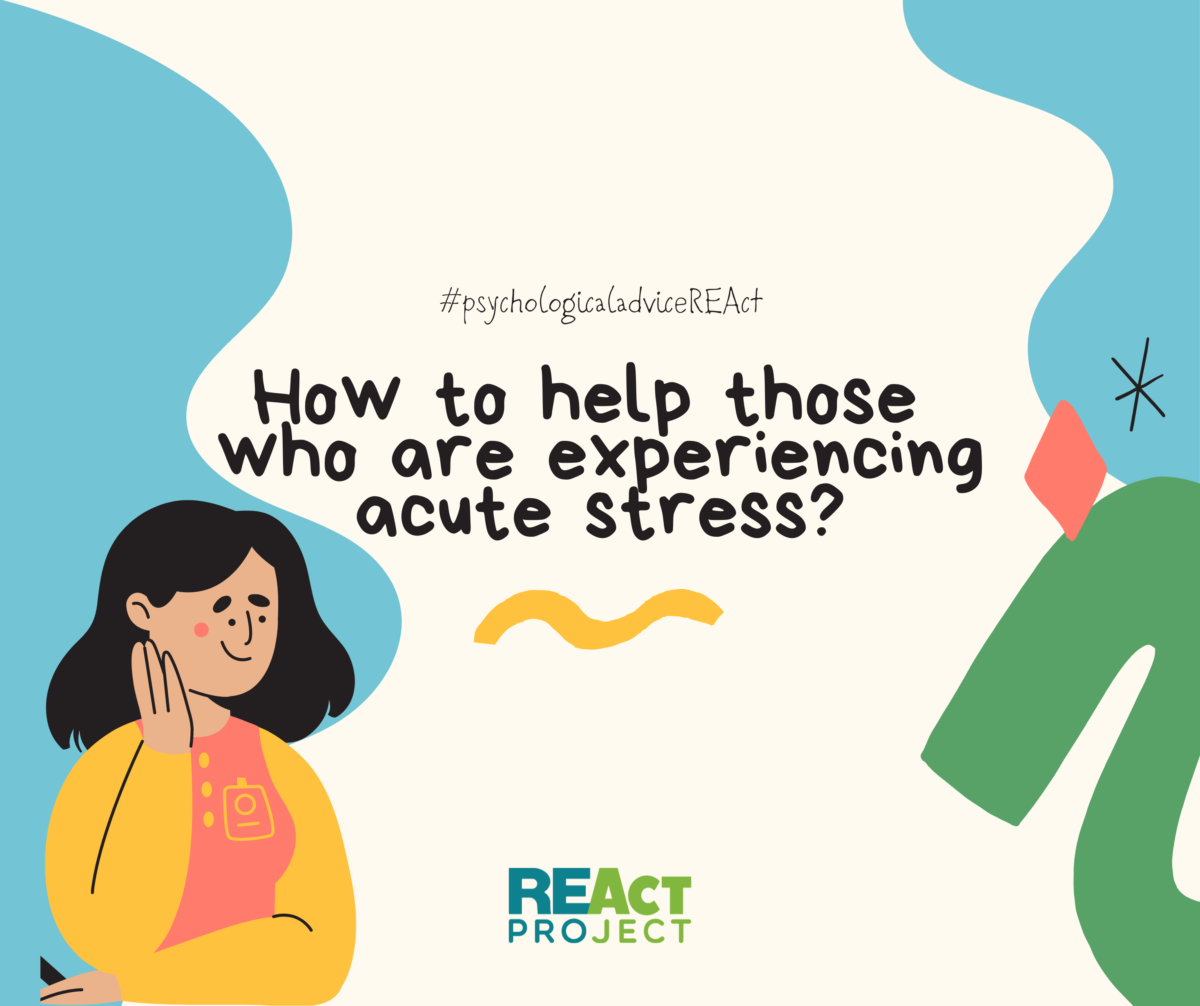An acute stressful situation is an experience where a person’s life is under threat. Those who find themselves in such a situation need psychological help and support. How should you act and what should you do if you have to provide psychological first aid?
There is a clear protocol on how to help people who have just experienced an acutely stressful event. It is easy to follow and can be used not only by psychologists but also by anyone involved in dealing with the aftermath of a traumatic experience.
Be sure to follow and respect the very important guidelines below while providing the necessary help and support:
- Avoid arguments or disputes with the person you are helping, even if their opinion differs from yours. Do not try to bring them around to your point of view. This is not your job. Your job is to help a person who is experiencing an acute stress reaction.
- It is essential to remember that you are helping someone who is particularly susceptible to suggestion. Every word you say can have either a therapeutic or traumatizing effect. Your task here is to mitigate the impact of a stressful situation. Therefore, be sure to avoid complicated language that can be confusing.
And now let’s focus on how to provide the psychological assistance needed.
- The first step is for you to calm your own nerves. While providing the services, you must be in a state of emotional stability. Although you may be scared too, you have to get your emotions under control.
- It is extremely important to not talk about the victim’s emotions. Your task is to “enable” completely different areas of their brain. Avoid using the following language and words, “Calm down,” “It’s all going to be okay,” “Everything shall pass,” “Things will work themselves out,” etc. This kind of language will make the person you are helping feel even more alone and lonely. They will not believe you.
- Speak at a much slower pace than you normally do. For the person you are helping, the outside world has crashed down and collapsed, and nothing is stable anymore. Therefore, to offset that sentiment, you should try giving them a sense of support and confidence.
- Use clear, short phrases, such as “Look at me. Do you see me?” This is a good place to start. The person is experiencing the effect of tunnel vision. It would help if you expanded that tunnel.
- Establish rapport and give them a first impression that there is something else out there, other than the horror they have experienced. Introduce yourself.
- Ask for their name.
- Next, ask them where they were going, what they were doing, and what they were about to do when… (an air raid alert siren started going off, the gunshots were heard, and everyone ran for their lives – describe the situation). Bouts of acute stress can disrupt the continuum of life’s events. These questions create a single chain of events and restore a sense of continuity.
- Repeat the answer after the person, clearly and concisely. Fill in the additional blanks if you know the situation. Without any emotions or extra details.
- You also have to reactivate their thinking capacity, as well as restore their sense of control and self-worth. This stage will require your creativity. For example, you can ask them to count up the people they see or take a look at the numbers of the buildings around them. Example wording: “Help me out here, I do really need to find out the numbers of the nearby buildings, this one’s and that one’s, but I have poor eyesight.”
- Then comes the process of “normalization.” Say, “All of the reactions you are experiencing (list those you can notice, e.g., feeling tearful, confused, anxious, devastated, scared, embarrassed, mentally sluggish, aggressive, etc.) are normal responses to an abnormal situation.”
A rare situation is when a victim is in a state of stupor. If the person “freezes” and does not respond, use your voice (say something in a confident and loud voice), and visual stimuli (wave your hand in front of their eyes). You can try giving them something contrasting (if there is an ambulance nearby, you can take a piece of ice and give it to them). Giving light slaps across the victim’s cheeks (as is shown in the movies) is not recommended. In a state of stupor, a person can hear and understand things but is unable to move.


